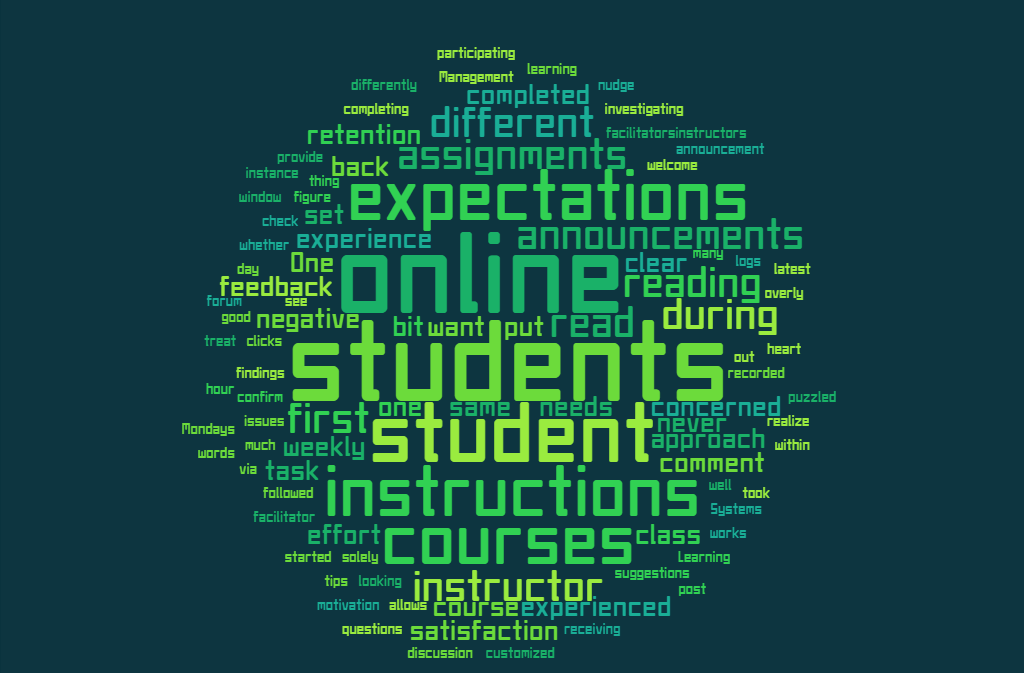As was noted in Teaching Practices, one of the Seven Principles by Chickering and Gamson was Communicating High Expectations. They noted that faculty members should:
“…expect more and you will get it. High Expectations are important for everyone – for the poorly prepared, for those unwilling to exert themselves, and for the bright and well motivated. Expecting students to perform well becomes a self-fulfilling prophecy when teachers and institutions hold high expectations of them and make extra efforts…”
A good example was an online professor at MiraCosta College who used a Q&A webpage to set expectations for her class. She answers questions that students typically have on how much time the class will take, whether the class is hard, what the course covers, etc.
Of course, you do not have to set up your own website. You could achieve the same goal within your LMS. The key is to communicate your expectations.
Lisa Ford, an elearning consultant with SkillSoft, suggested communicating the following expectations to students:
- Make time for e-Learning. Set aside specific times to work on your courses and stick to your schedule. Internet based courses do not have the regular meeting times and terms that instructor-led courses have, so you can set your own time schedule.
- Pace yourself. Deciding your own hours is great, but make sure you do not fall behind in your schedule. Catching up is difficult. Create milestones or check points to help you stay on track.
- Prepare for the course by reviewing its organization, navigation, tools and resources. Read the introductory materials in the course before getting started. Exploring the materials will clarify the course structure and help you work efficiently once you begin.
- Be a strategic learner. Look at the learning outcomes and scan the assignments prior to starting the course. Keep the outcomes and tasks in mind as you work through sections of the course.
- Don’t feel that you need to read everything. Students have different learning styles and some don’t need to read everything to succeed.
- Maintain a positive attitude. Don’t become discouraged if you run into difficulties. Developing new skills and knowledge is sometimes difficult, but the gain is worth the pain. Moreover, it may take some adjustment to get comfortable working remotely.
- Take the initiative. Learning is a process and there is not necessarily one right answer to most questions. Online learning allows you to balance independent learning with mentoring.
- Collaborate. Helping others and sharing your view will enhance your learning and make it more fun.
- Share your experiences. Ask yourself whether the material in the course is consistent with your experience, and analyze why or why not. Share these ideas with others to challenge your own thinking and learn from the ideas of your colleagues.
Keep in mind that expectations can be a double-edged sword. You obviously will want to stick to the same standards you are requiring of your students!
